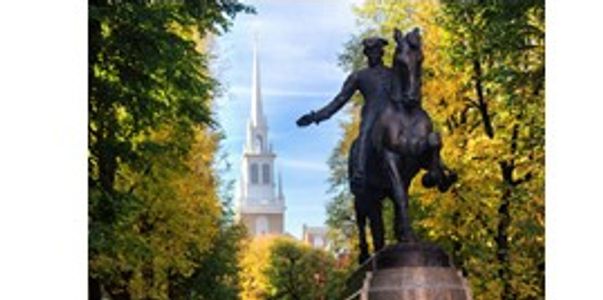
"One if by land.... Two if by sea....
The First Amendment to the US Constitution
AMENDMENT I: Congress shall make no law respecting an establishment of religion, or prohibiting the free exercise thereof; or abridging the freedom of speech, or of the press; or the right of the people peaceably to assemble, and to petition the Government for a redress of grievances..

Why It Happened...
The year was 1670, and the case Bushel sat on was that of William Penn, who was on trial for violation of the "Conventicle Act." This was an elaborate Act which made the Church of England the only legal church. The Act was struck down by their not guilty vote. Freedom of Religion was established and became part of the English Bill of Rights and later it became the First Amendment to the Constitution of the United States. In addition, the Right to peaceful assembly was founded, Freedom of Speech, and also habeas corpus. The first such writ of habeas corpus ever issued by the Court of Common Pleas was used to free Edward Bushel. Later this trial gave birth to the concept of Freedom of the Press.
Had Bushel and his colleagues yielded to the guilty verdict sought by the judge and prosecutor, William Penn most likely would have been executed, as he clearly broke the law. Then there would have been no Liberty Bell, no Independence Hall, no city of Philadelphia, no state called Pennsylvania, for young William Penn, founder of Pennsylvania, leader of the Quakers, was on trial for his life. His alleged crime was preaching and teaching a different view of the bible then that of the Church of England. At that time one could be executed for such actions. He believed in freedom of religion, freedom of speech, and the right to peaceful assembly. He had broken the government's law but had injured no one. Those four heroic jurors knew that only when actual injury to someone's person or property takes place is there a real crime. No law is broken when no injury can be shown. Thus, there can be no loss or termination of rights unless actual damage is proven. Many imposter laws were repealed as a result of this case.

